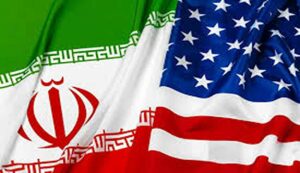US imposes new sanctions on a network of individuals and entities in Iran
US: Even as high-stakes nuclear negotiations continue behind closed doors, the United States has imposed further sanctions on a network of Iranian people and organizations, alleging that they helped smuggle ballistic missile propellant ingredients to the Iranian Revolutionary Guard Corps (IRGC).

Six businesses and six people were singled out by the U.S. Treasury Department for aiding in the transfer of chemicals needed in the manufacture of solid-fuel rocket motors.
Despite continued diplomatic attempts with Iran, this most recent round of sanctions shows that President Donald Trump is not reversing his “maximum pressure” strategy. The United States emphasizes that any future agreement must cover more than simply nuclear issues by focusing on organizations that support Iran’s missile program.
Since February 4, when Trump issued a memorandum launching a comprehensive campaign against Iran, the penalties represent the ninth such move. These actions show the administration’s determination to keep up political and economic pressure while attempting to curtail Iran’s military might.
A network that reportedly helped get sodium perchlorate and dioctyl sebacate—chemicals needed to produce ammonium perchlorate, a crucial part of solid propellants for ballistic missiles—was sanctioned by the Treasury. According to reports, China gave these resources to Iran’s IRGC.
The Missile Technology Control Regime, an international pact aimed at halting the proliferation of missile technology, governs ammonium perchlorate.
“Iran’s aggressive development of missiles and other weapons capabilities imperils the safety of the United States and our partners,” Treasury Secretary Scott Bessent said on Tuesday, highlighting the pressing need to stop Tehran’s military progress.
Nuclear Discussions Go On
Since early April, U.S. and Iranian officials have had three rounds of negotiations while sanctions remain in place. These talks, which took place in Rome and Muscat, have been characterized as fruitful but have not yet produced significant advances. A fourth round of negotiations is anticipated shortly.
Port Explosion Sparks Conjecture
At least 70 people have been killed in a devastating explosion in the southern Iranian city of Bandar Abbas, which prompted the new sanctions. According to Iran’s interior minister, the catastrophic explosion and fire at Shahid Rajaee, the nation’s biggest cargo port, were caused in part by incompetence.
According to U.S. and European media accounts, the explosion could have been caused by sodium perchlorate that was stored at the location. The Defense Ministry of Iran refuted the allegations, stating that no classified information was kept there.
“The safety of the United States and our partners is at risk due to Iran’s aggressive development of missiles and other weapons capabilities,” said U.S. Treasury Secretary Scott Bessent. Treasury will keep doing all it can to prevent Iran from obtaining the resources it needs to develop its missile program in order to bring about peace via force.
A representative for the Iranian Defense Ministry said, “There were and are no imports or exports of fuel shipments or cargo for military use in the vicinity of the incident.”
As the parties continue to work through their differences, the fourth session of negotiations, which is scheduled for this Saturday, will be very important. The U.S.-Iran talks are anticipated to center on finding a solution that addresses both nuclear and missile-related problems, given the lingering sanctions and the potential for more action.